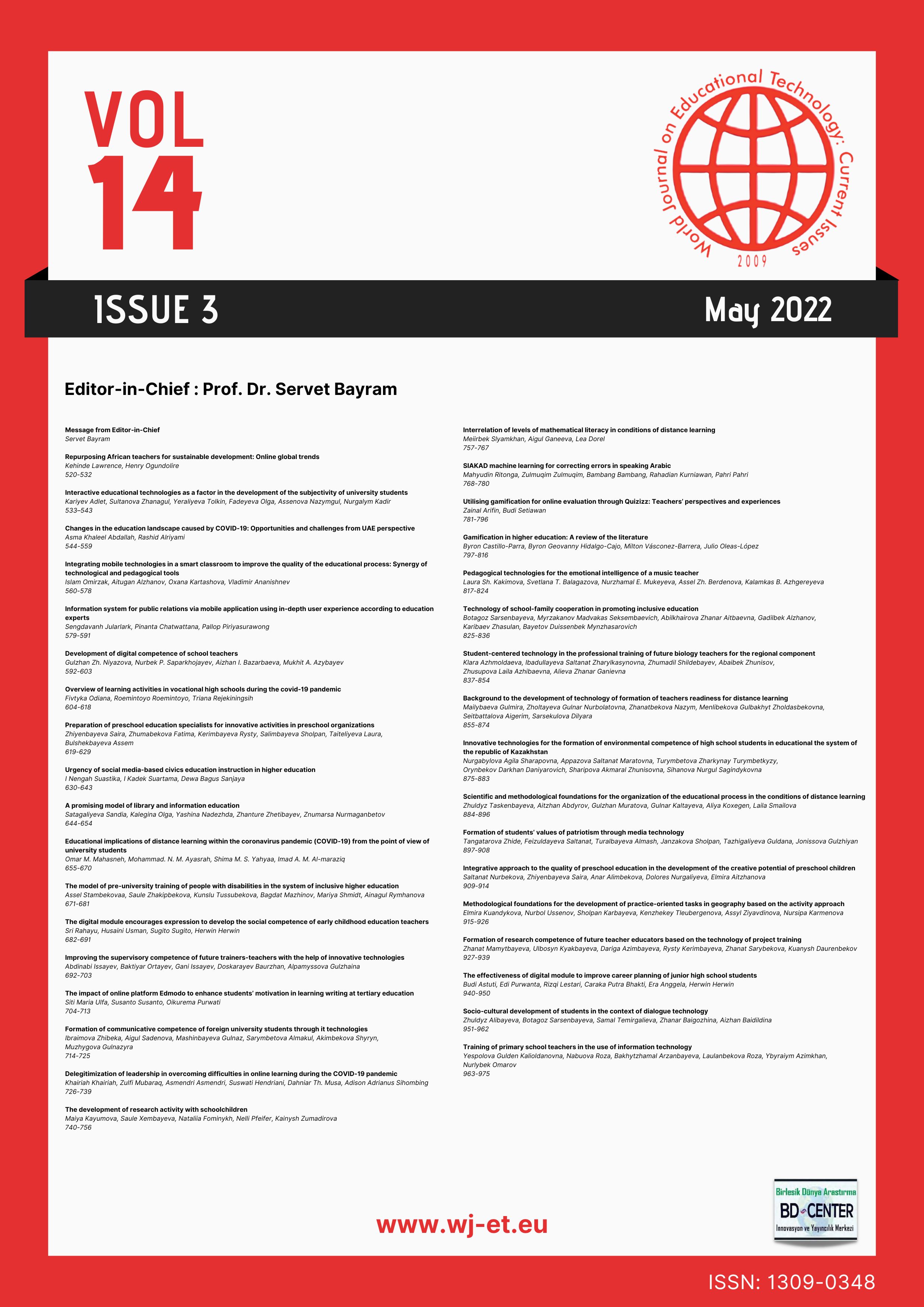Integrating mobile technologies in a smart classroom to improve the quality of the educational process: Synergy of technological and pedagogical tools
Main Article Content
Abstract
The article describes the possibilities of mobile learning to implement the innovative educational concept of Smart Classroom. To increase the effectiveness of international partnerships and to develop opportunities for creating innovative projects in relevant socio-economic areas, an online forum "Engineering of educational courses in the medical and pharmaceutical industry" was held. Proficonf videoconferencing system made it possible to organize five online meetings on digital technologies in the training of modern pharmaceutical personnel within the concept of "Smart Classroom". The study results show that under digital transformation of the educational paradigm, it is advisable to consider a curriculum development strategy in the university ("Smart Campus"). Based on the study results, one can conclude that implementing the concept of "Smart Classroom" allows one to improve teaching methods and interaction between students at all stages of international educational relations.
Keywords: digital technology, mobile learning, Smart Classroom, Smart Environment, Smart Technology, student interaction.
Downloads
Article Details

This work is licensed under a Creative Commons Attribution 4.0 International License.
World Journal on Educational Technology: Current Issues is an Open Access Journal. The copyright holder is the author/s. Licensee Birlesik Dunya Yenilik Arastirma ve Yayincilik Merkezi, North Nicosia, Cyprus. All articles can be downloaded free of charge. Articles published in the Journal are Open-Access articles distributed under CC-BY license [Attribution 4.0 International (CC BY 4.0)].
Birlesik Dunya Yenilik Arastirma ve Yayincilik Merkezi (BD-Center)is a gold open-access publisher. At the point of publication, all articles from our portfolio of journals are immediately and permanently accessible online free of charge. BD-Center articles are published under the CC-BY license [Attribution 4.0 International (CC BY 4.0)], which permits unrestricted use, distribution, and reproduction in any medium, provided the original authors and the source are credited.
